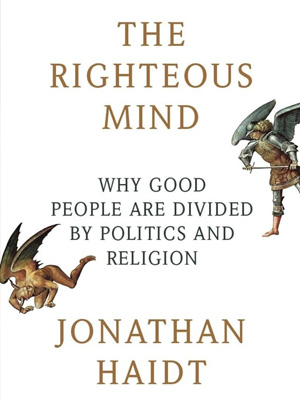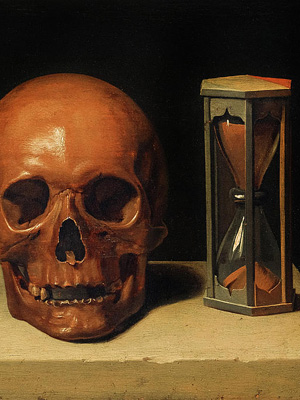
Masonic Articles and Essays
Grains of Sand
Very Illus..... Bro... Kris Wilson-Slack 33o
Date Published: 8/21/2024
Freemasonry teaches us that our existence, our essence, our being is a unique emergence into the cosmos and yet we are equally taught to subsume ourselves into the whole, the Great Work, for the benefit of all. How can the Freemasonry reconcile this contradiction to make himself of ever greater service?
 I'm reading an incredibly dense and thought-provoking book called "The Righteous Mind." I admit to it being somewhat of an "effort;" rather than an expose on its subtitle "Why Good People are Divided by Politics and Religion," it is somewhat of a biography of the author's studies into moral psychology. The biography is a path, sometimes incredibly circuitous, toward his final premise: different premises of morality inform us, shape us, and ultimately move us toward our choices in how we behave throughout our lives. In short, we lean our thoughts toward either autonomy, community, or spirituality. Generally, though, it's a mixture of all three. Our brains are prewired in such a way as to accept our environment and cultural morals as our own without the knowledge that they, in fact, lean us toward one direction or another.
I'm reading an incredibly dense and thought-provoking book called "The Righteous Mind." I admit to it being somewhat of an "effort;" rather than an expose on its subtitle "Why Good People are Divided by Politics and Religion," it is somewhat of a biography of the author's studies into moral psychology. The biography is a path, sometimes incredibly circuitous, toward his final premise: different premises of morality inform us, shape us, and ultimately move us toward our choices in how we behave throughout our lives. In short, we lean our thoughts toward either autonomy, community, or spirituality. Generally, though, it's a mixture of all three. Our brains are prewired in such a way as to accept our environment and cultural morals as our own without the knowledge that they, in fact, lean us toward one direction or another.
I will not delve into the book here but I encourage all who seeking to read it. It will incline you to delve into moral psychology, the morality of different countries and cultures, and even scientific studies that explain the details that could not be explained here. It is heady, dense, and enlightening. I will encourage you to listen to others with an open mind and heart. If you're further inclined, it might encourage you to listen to yourself.
What does this have to do with a grain of sand, you may ask? I believe we individuals are like a grain of sand, unique in color, form, size, and age. We revel in our individuality, and desperately seek our autonomy and unique nature. Yet, that grain of sand, removed from the beach, is only a piece, only a single spark of glittering light in the whole. A beach is not an individual; it is a collective. Without all of the grains of sand, the beach would cease to have its own unique character; in fact, it would cease to exist period.
As we drift farther and farther into devolution, we seem to drift farther and farther from the very definition of who we are. Humanity has forgotten its collective nature, being, purpose, and unique state. An egregore (also spelled egregor; from French égrégore, from Ancient Greek ?γρ?γορος, egregoros 'wakeful') is a concept in Western esotericism of a non-physical entity or thoughtform that arises from the collective thoughts and emotions of a distinct group of individuals. In Esoteric Freemasonry, we tend to think of an egregore as the thoughtform of a Lodge or the Masonic Order. We think of ourselves as individuals, comprising this Lodge which consequently creates the thoughtform.
I say we forget the purpose of Freemasonry. It is not to make the individual man better. That is a by-product of the service we bring, of the labor and work we accomplish in the Masonic Order to which we belong. Perfect ritual does not make the Perfect man. Perfect memorization does not make the Perfect man. Our purpose is the progress of the whole beach, just like the whole of humanity. The Perfect Man allows himself to die every day to free himself and find his communion with the First Cause. Not only does Masonry speak of this but many of the world religions also speak of it.
Luke 9:23 “If anyone would come after me, let him deny himself and take up his cross daily and follow me."
Jizang (549 – 623) "The absence of essence or self in the world represents the singular truth to be earnestly pursued."
Bhavagad Gita (16:18) "Bewildered by many a fancy, entangled in the meshes of delusion, addicted to the gratification of lust, they fall into a foul hell." (e.g. ego)
Tao te Ching (22): "If you want to be reborn / let yourself die / if you want to be given everything / give everything up.
 The idea is that we are unique and singular, like a grain of sand. But a grain of sand, by itself, is not whole. The whole is the beach; the quintillion grains of sand that comprise the entity we call "the beach." A single grain of sand is beautiful and special. It may create a pearl or it may cause frustration in a shoe. That singular purpose is important...but I ask: is it the main reason for its existence? Perhaps. More likely, it has been placed on the beach to comprise the whole beach, to feed and protect the life that inhabits the beach, and perhaps play a greater part in an unfolding universe.
The idea is that we are unique and singular, like a grain of sand. But a grain of sand, by itself, is not whole. The whole is the beach; the quintillion grains of sand that comprise the entity we call "the beach." A single grain of sand is beautiful and special. It may create a pearl or it may cause frustration in a shoe. That singular purpose is important...but I ask: is it the main reason for its existence? Perhaps. More likely, it has been placed on the beach to comprise the whole beach, to feed and protect the life that inhabits the beach, and perhaps play a greater part in an unfolding universe.
A beautiful piece of writing encapsulates this idea of the individual as a grain of sand in the vastness of humanity, I believe. It is not Masonic in its nature, but it is Masonic in its heart. I leave part of it for you here, with a link to the whole, by John Vander Velden, "Only One Grain of Sand."
You see the Master of the Beach knows each grain of sand — recognizes that every grain is unique. The Master of the Beach knows when each grain came to be, where it was formed, and how it has at last arrived to the particular beach which is its home. The Master of the Beach knows that each grain has a shape it shares with none other, slight variances of chemical composition, and shades of color. The Master of the Beach has named each grain — perhaps a name different than the name the grain of sand might call itself, because no person knows the grain of sand better…especially the grain itself. The Master of the Beach knows all these things and sees a value invisible to others, how each grain supports others, how each grain matters.
